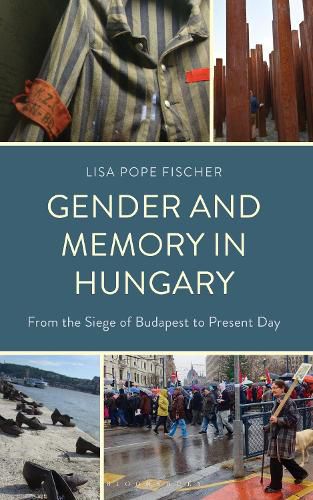Readings Newsletter
Become a Readings Member to make your shopping experience even easier.
Sign in or sign up for free!
You’re not far away from qualifying for FREE standard shipping within Australia
You’ve qualified for FREE standard shipping within Australia
The cart is loading…






Gender and Memory in Hungary: From the Siege of Budapest to Present Day examines the life stories of elderly Hungarian women through a person-centered approach from an anthropological perspective. Each woman crafts her narrative against the backdrop of significant historical events: World War II, the post-war period, the 1956 revolution, the Kadar era, and the shifts of post-communism leading into Goulash populism. These narratives not only mirror large historical signposts but also shed light on cultural patterns and unofficial microhistories that form a Chorus of Experiences-an intricate tapestry of diverse lived experiences, identity, and memory. The author uses anthropology to explore the nuances of personal stories, revealing insights about our shared human condition. By adopting this view, the text draws interesting parallels between Goulash populism and neo-revitalization movements, highlighting that while our history shapes the present, today's societal context also influences how we reinterpret the past.
$9.00 standard shipping within Australia
FREE standard shipping within Australia for orders over $100.00
Express & International shipping calculated at checkout
Stock availability can be subject to change without notice. We recommend calling the shop or contacting our online team to check availability of low stock items. Please see our Shopping Online page for more details.
Gender and Memory in Hungary: From the Siege of Budapest to Present Day examines the life stories of elderly Hungarian women through a person-centered approach from an anthropological perspective. Each woman crafts her narrative against the backdrop of significant historical events: World War II, the post-war period, the 1956 revolution, the Kadar era, and the shifts of post-communism leading into Goulash populism. These narratives not only mirror large historical signposts but also shed light on cultural patterns and unofficial microhistories that form a Chorus of Experiences-an intricate tapestry of diverse lived experiences, identity, and memory. The author uses anthropology to explore the nuances of personal stories, revealing insights about our shared human condition. By adopting this view, the text draws interesting parallels between Goulash populism and neo-revitalization movements, highlighting that while our history shapes the present, today's societal context also influences how we reinterpret the past.